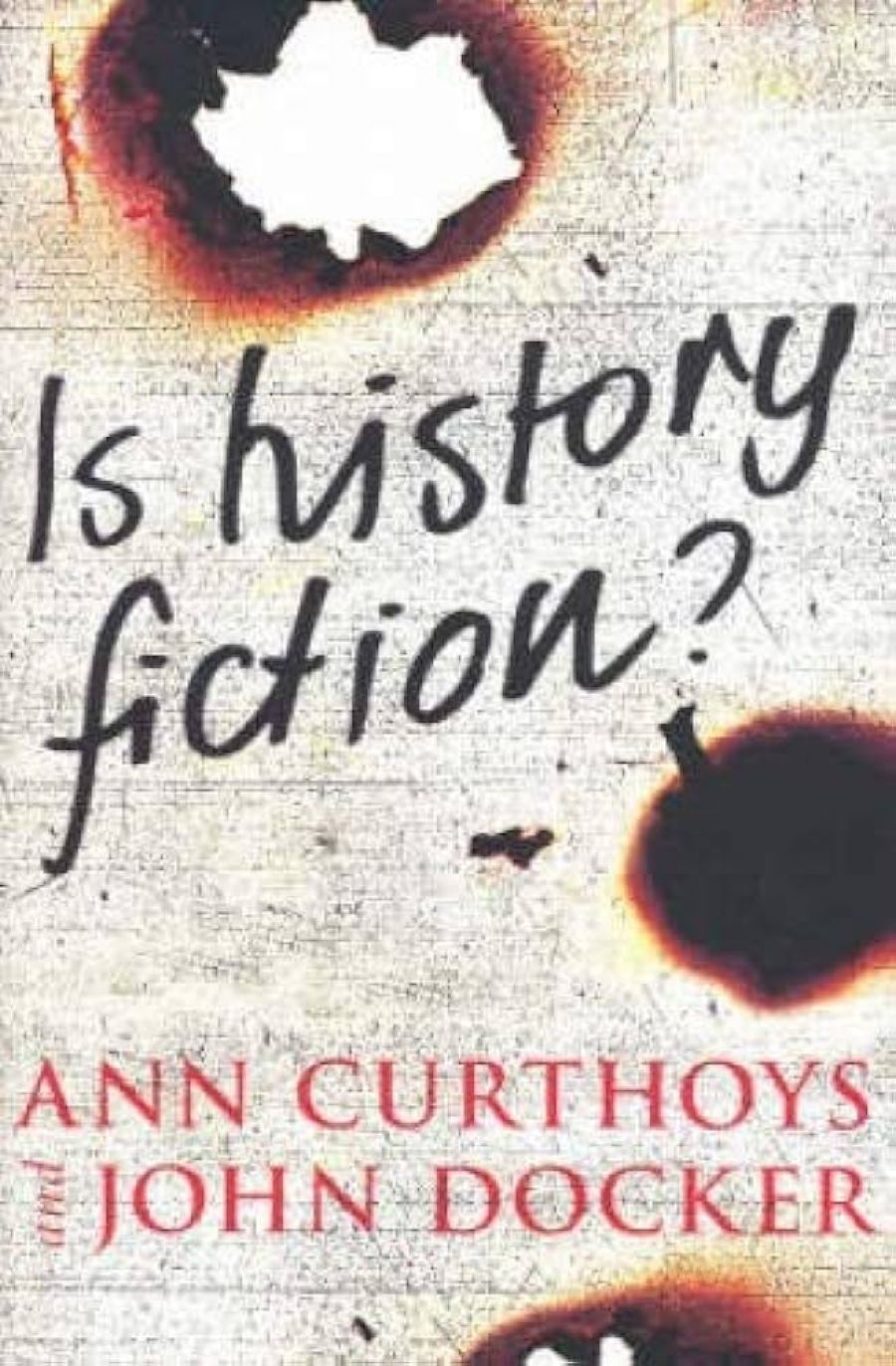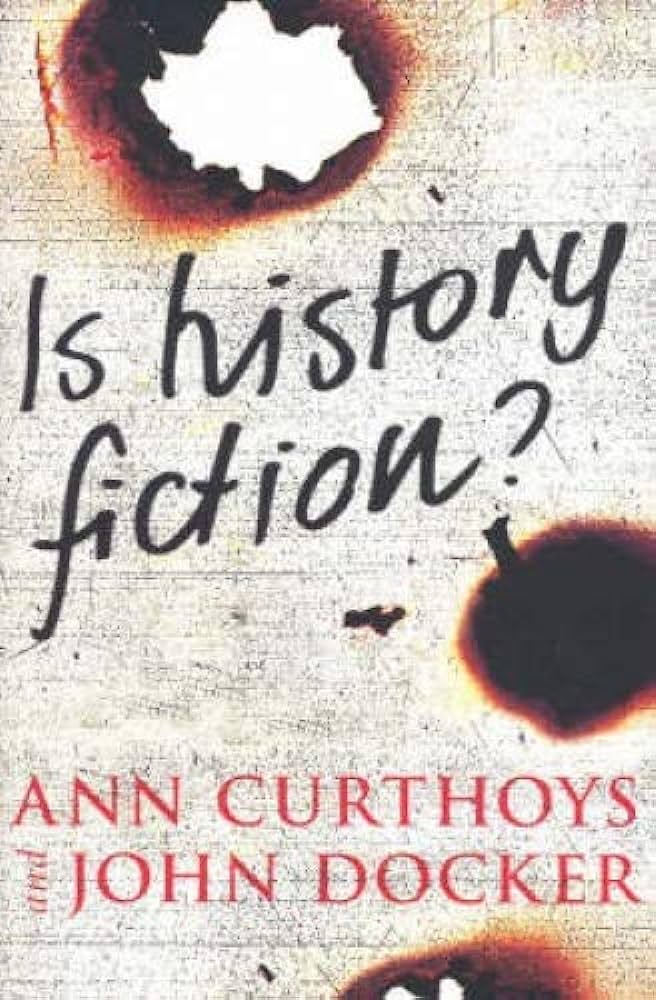
- Free Article: No
- Contents Category: History
- Review Article: Yes
- Article Title: Doubleness of history
- Online Only: No
- Custom Highlight Text:
In recent years, there has been significant public anxiety over Australia’s past, and historians have found themselves in the middle of a contest over increasingly urgent issues of historical narrative and approach. It has been a heated debate, encapsulated by a series of graphic and divisive metaphors proclaiming history’s ‘murder’, ‘fabrication’ and even the ‘killing of history’. While these so-called ‘history wars’ have come to dominate discussion of Australia’s past, the limitations of such debate are telling: history has been forced into opposing camps (left–right, black–white etc.); and examining contrasting readings of the past without falling into its prescribed lines of division now seems more difficult than ever.
- Book 1 Title: Is History Fiction?
- Book 1 Biblio: UNSW Press, $39.95 pb, 304 pp
- Book 1 Cover Small (400 x 600):

- Book 1 Cover (800 x 1200):

Is History Fiction? attempts to do just that. Ann Curthoys and John Docker present a series of debates and ideas about historical methodology, and they do so by moving away from the prevailing parameters of the dispute. They agree that history must involve some sort of critically engaged reconstruction of the past, and that accusations of deliberate fabrication are genuine cause for alarm among historians. But they also contend that history is a fundamentally literary pursuit, where the very act of its communication means the past has to be refashioned and reedited for people to make sense of it. Indeed, they point out, good history writing sometimes comes at the expense of dry, detailed reconstruction – the sort of history we want to read is rarely just a recounting of facts and dates. It is the very relationship between what history is and how it should be written that forms the foundation of this thoughtful study.
The book moves from the work of early historians such as Herodotus and Thucydides to the contemporary challenges of feminism and postmodernism. Each has posed important questions for the practice of history as a discipline; and each confirms the continuing difficulty for historians to represent the past in light of the present. Curthoys and Docker see this obligation of the historian to ‘write history’ as notoriously difficult to clarify. Should they recreate the past ‘as actually it was’, as the nineteenth-century German historian Leopold von Ranke famously defined? Or are they obliged to present the past so that a contemporary readership can understand and identify with it?
This fundamental question dogs professional historians and first-year students alike, and helps explain why the seeds of present debates are rooted in age-old methodological questions about the role of history and about the role of the historian. Of course, there are no easy answers. While many historians argue that history’s literary qualities enable us to communicate and connect with the past, others insist just as vigorously that the discipline requires an objective, detached pursuit of the truth. (Keith Windschuttle notoriously remarked that historians of frontier violence need to be dispassionate, not compassionate.)
Curthoys and Docker do not pretend to reconcile these positions, but suggest that it is the very ‘doubleness’ of history that makes it so compelling. This ‘space between history as rigorous scrutiny of sources and history as part of the world of literary forms’ is what ‘gives it ample room for uncertainty, disagreement, and creativity’. It is not history’s capacity to simply identify ‘what happened’, but the process of communicating it, that enables us to shed light on the critical relationship between the present and the past.
One of the strengths of this book is the way it brings together centuries of historical discussions from around the world. It reconsiders current historical debates within a much longer and more developed understanding of Western historical practice. And it is valuable to be introduced to these historical moments and ideas, to contextualise current obsessions in a global and historical framework at a time when history is becoming increasingly specialised. This not only offers students and historians a helpful history of debates over method and approach, but also provides the book with a point of departure to consider the relationship between these historical debates and more contemporary concerns.
Curthoys and Docker chronicle a series of ‘history wars’, if you like, occurring across time and space. Yet that term is inappropriate for this work, because the authors consider their research a response to the politicised and apparently intractable historical disputes of today. They do so by replacing the prevailing historical dichotomy with dialogue: the book is presented as an historical conversation that operates between the historians and their ideas, between Curthoys and Docker and their readers, and, perhaps most critically, between the present and the past.
This is its success. Is History Fiction? illuminates the practice of history with consideration and reflection. Written in a style that is engaging and accessible, the authors provide generous space within the book for further conversation and constructive debate.
If anything, the effort to introduce and explain a great variety of historical movements and ideas for a wide audience means that much of the book’s conversation is taken up by description. But if this study is to have an impact on historians and interested readers who have become increasingly frustrated with the divisiveness of contemporary Australian debates over the past, such detail is probably necessary to begin the conversation that Curthoys and Docker propose. Is History Fiction? importantly gives context and meaning to questions of historical argument and approach; the ‘history wars’ are nothing new, it calmly explains, but simply reflect contemporary concerns over the past acted out in the present.


Comments powered by CComment